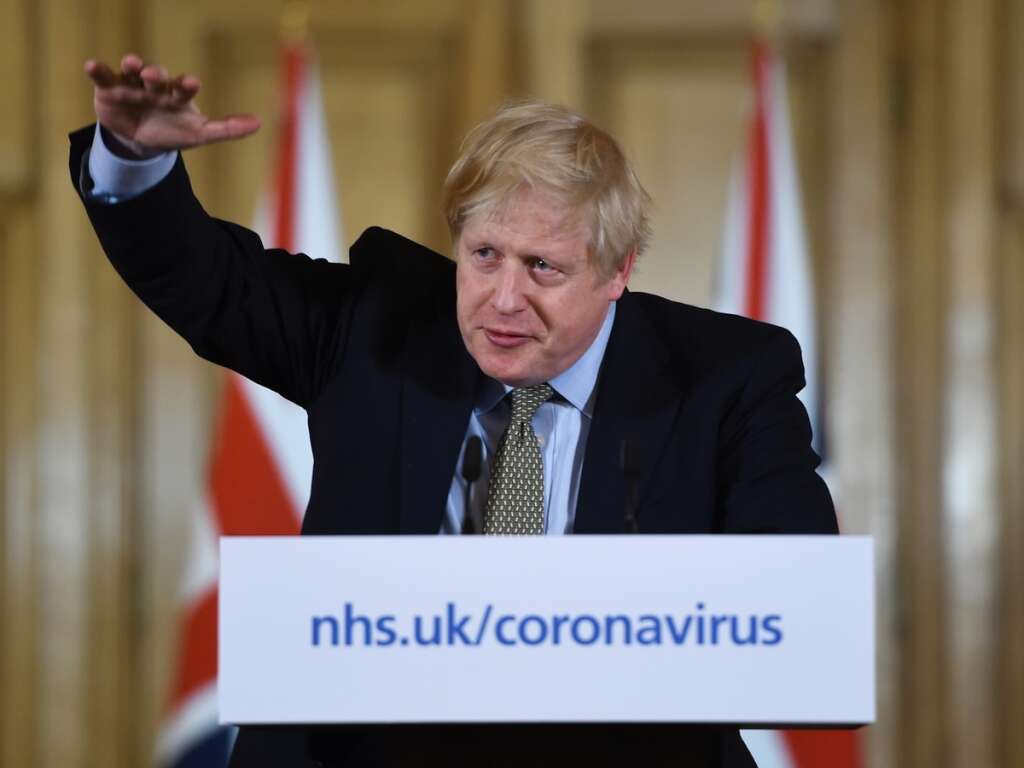This truly has been a year of unprecedented turmoil, and by God we’re only just halfway through. While only a cruel stroke of fate can be blamed for the tragic deaths inflicted by the worldwide pandemic, the catastrophe which may prove costliest in the long run is one which was an entirely man made creation. For the first time since the Second World War the UK government implemented population wide restrictions on free movement and business, an act which flies in the face of the civil liberties our country built itself upon. Such draconian measures should arguably be beyond the scope of a principled government entirely, however in times of desperate need, where a great proportion of the civilian population have their rights put under tangible threat, the state can be justified in overstepping their bounds. The question then becomes, as we begin turning to look at the coronavirus outbreak with hindsight, was this one such occasion? Was the lockdown justified?
What has to be established before we continue is the devastation which the lockdown has caused and will continue to wreak on the lives of people in this country and people across the world. Proponents of the lockdown have a tendency to invoke a dichotomy between the economy and human life. This plays into the contemporary delusion that the economy is some well-defined machine divorced from humanity, which can be arbitrarily manipulated and broken down at will, and without impacting anything but the numbers on a financial forecast graph, or the colour of the arrows on the FSTE 100. In reality, the economy is an almost infinitely complex web of human interaction, and every aspect is inexorably tied together and dependant on one other. This means that when experts estimate that the UK will see a drop in GDP by 35% and an increase of the deficit to 14% of GDP, what we are looking at is real, concrete damage to the lives of individuals. We are in the midst of the largest financial crisis since the Second World War, a statement which no one should take lightly.
The impact of the lockdown has had a damaging effect on almost every area of the economy; however, some have been particularly hard hit. The travel sector has remained in a state of paralysis for months now, leading to a frantic attempt to coax Brits abroad for what can be salvaged of the summer months, lest the airlines fall short of the insatiable need for growth required of them by the free market. Although the travel sector is a largely unavoidable causality of a global pandemic, this rapid decline has no doubt characterised many, albeit less high profile, businesses and economic sectors across the country. In coming months it will continue to do so, especially as the temporary life-line of the government furlough scheme is ripped away. Indeed, what we have seen thus far may well be just the tip of the iceberg, with the government having bore the brunt of the economic damage. The furlough scheme has extended to a massive 8 million workers, a quarter of the entire UK workforce. This has prevented unemployment rising to unprecedented levels for the time being, however such a drastic increase in government spending comes at a cost of its own.
Can the government shoulder the burden?
The past decade has seen a concerted effort to reduce government spending, with a view to, as David Cameron made clear: “getting the deficit down“. The borrowing required for the furlough scheme has effectively wiped out the progress of the last 10 years of austerity, and skyrocketed government debt to levels almost unprecedented in peacetime. Again, it is important to make clear that government debt is not just a problem for Boris, and shouldn’t really be thought of as a ‘government’ debt at all, as it isn’t the government who has to come up with the money – it’s all of us, and our children. This debt commits the future tax revenue of the masses, born and unborn, to its payment. This makes any decrease in taxation very hard to achieve, and any rise in public spending risky and irresponsible, due to the fact that a certain degree of tax revenue is required to simply meet the interest on the government loans, let alone to begin repayment. All this without considering the fact that the furlough scheme must come to an end, and although it will likely have saved thousands if not millions of jobs, a sharp rise in unemployment is sure to follow. Such rises in the unemployment rate come at a real, human cost, which illustrates the severity of the situation we find ourselves in. Following the 2008 financial crash, the UK observed a surge in the suicide rate by around 5,000 in the first year alone, and although these figures cannot definitively be attributed to the economic turmoil, studies have demonstrated a clear correlation between unemployment and suicide. A human cost in terms of lives lost as a direct result of this government’s actions is something we can have little doubt about.
On the positive side, we have seen some welcome the economic shutdown, citing benefits to the environment and wildlife in their local area, however statistics which point out real damage to the lives of thousands, surely put such superficial advantages into perspective. Perhaps a silver lining can be found when we consider that, with the sudden influx of talented individuals into the limbo of unemployment, we could see a significant rise in entrepreneurship. This could not only help mitigate some of the damage caused by the crisis, but a wave of start-up companies and innovation in the free market could bring revolutionary new products and services to fruition, potential which may have otherwise been squandered. Despite this prospect, and unless the entrepreneurial capacity of the British population exceeds all expectation – something which is unlikely considering the inevitable rise in taxation and tariffs – we can be safe in saying that the economy, and consequently the lives of many individuals, has been meaningfully stunted for the foreseeable future.


